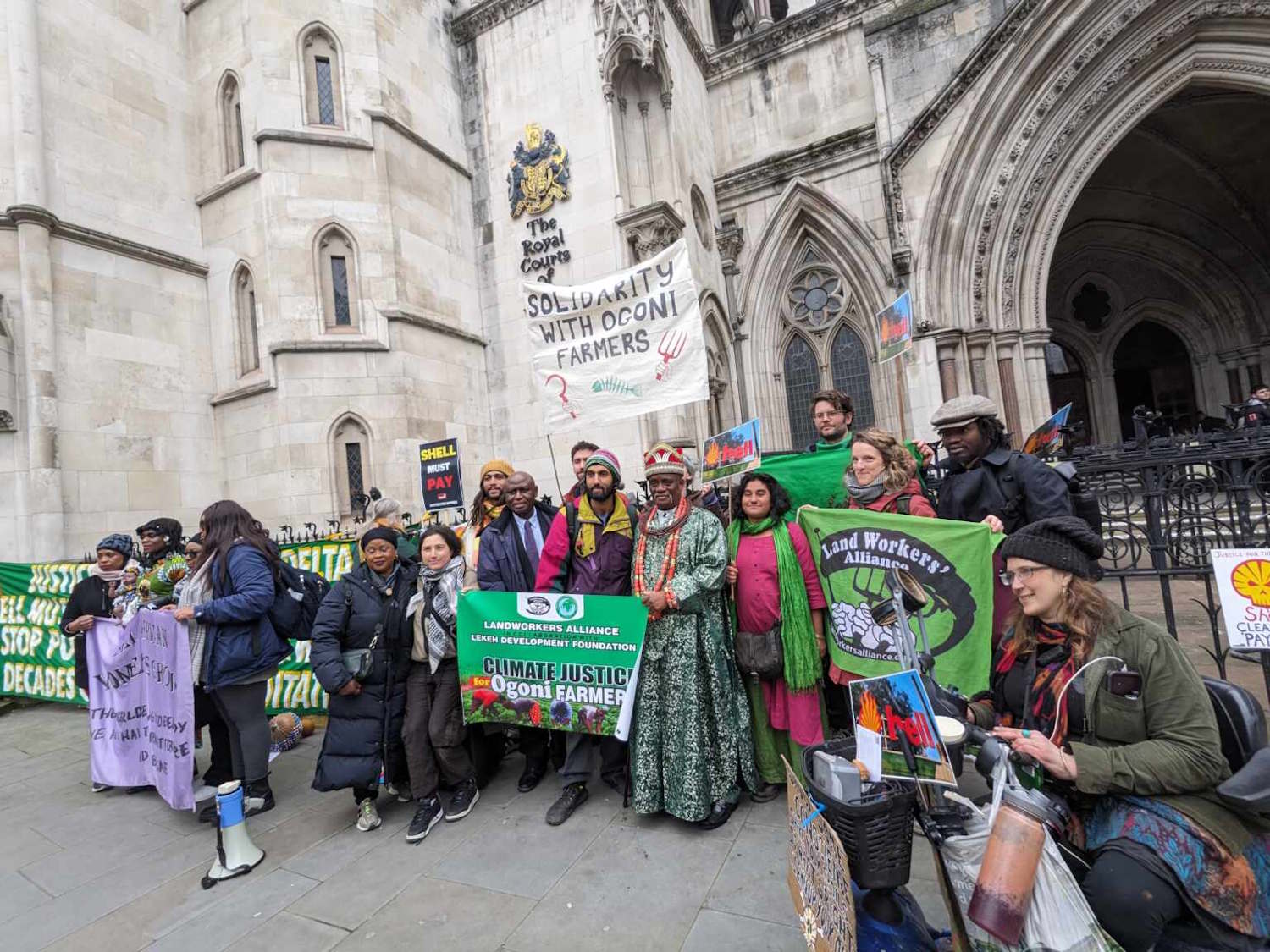An epochal trial opens today in London, where two Ogoni communities are calling on Shell to answer for the environmental damage caused by its activities in the Niger Delta. Decades of oil exploitation have devastated the ecosystem and the health of local populations, who are now demanding justice

@woudena
A milestone trial commenced today at the Royal Courts of Justice in London, pitting two Ogoni communities in the Niger Delta region of Nigeria against oil multinational Shell. The two communities, through a team of lawyers, accuse the multinational of the ecological devastation caused by decades of oil drilling in the region.
The Niger Delta, the source of Nigeria’s oil production, has been the site of an environmental disaster for decades. Since Shell began operations there in the 1950s, there have been countless oil spills that have polluted the water, land, and atmosphere. The Ogoni, who traditionally relied on farming and fishing for subsistence, have lost their source of survival and been forced to live in hazardous, if not merely toxic, conditions.
The photos from the Niger Delta are gruesome: rivers and swamps buried under heavy blankets of oil, lifeless fish swimming on top, fertile fields reduced to toxic wastelands. But the cost in human lives is even more tragic. Reports by the United Nations Environment Program (UNEP) have identified shocking amounts of carcinogens in tap water, up to 900 times over the safety limits. Local people are responsible for an increase in cancer cases, respiratory disease, and infant mortality.
Despite overwhelming evidence, Shell has consistently denied responsibility, blaming the spills on oil theft and sabotage by criminal gangs. But the Ogoni people will not stand for it. They have taken Shell to court, seeking compensation for the loss they have suffered and justice for the victims of this environmental tragedy.
BREAKING: Shell boss disrupted on the same day a MOMENTOUS court case – the Bille and Ogale communities vs Shell – finally begins in London.
We stand in full solidarity with the Niger Delta's demand that Shell must pay up and clean up.#JusticeforNigeria #ShellCrimesinCourt pic.twitter.com/1s2yBkegia
— Fossil Free London (@fossilfreeLDN) February 13, 2025
The London trial is a milestone in the fight for environmental justice in Nigeria. If the Ogoni people succeed, it will be a precedent for holding multinational corporations accountable for the harm they cause to people and the environment in the developing world.
A lost paradise
In order to fully appreciate the scale of Niger Delta’s environmental disaster, one has to trace back to the 1950s, when the discovery of oil radically changed the destiny of the region. The arrival of multinational oil companies, attracted by the promise of profitable returns, ushered in an era of uncontrolled exploitation of resources, with disastrous consequences for the environment and indigenous people.
Shell itself was right at the center of this story. The Anglo-Dutch multinational was the trailblazer for starting to extract oil in the region, building wells, pipelines, and refineries that revolutionized the landscape so dramatically.
An endless trail of disasters
Since 1958, at least 1.6 million tons (3.5 billion pounds) of crude oil have been spilled in at least 7,000 incidents in the Niger Delta. The causes of these tragedies are numerous: poor maintenance of infrastructure, neglect by oil companies, and sabotage by armed groups in an attempt to destabilize the region.
The Ogoni communities’ struggle
Faced by this tragedy, the Ogoni have not remained passive. They have organizing since the 1990s to condemn the devastation caused by oil operations and demand justice. Their most charismatic leader, Ken Saro-Wiwa, lost his life for his campaign, being put to death by Nigeria’s military regime in 1995.
But his legacy lives on. The Ogoni people continue to fight for justice, engaged in a decades-long legal battle against Shell. The London trial is a turning point in this fight. If they win, it would redefine corporate responsibility for environmental destruction and human rights abuses in the developing world.
